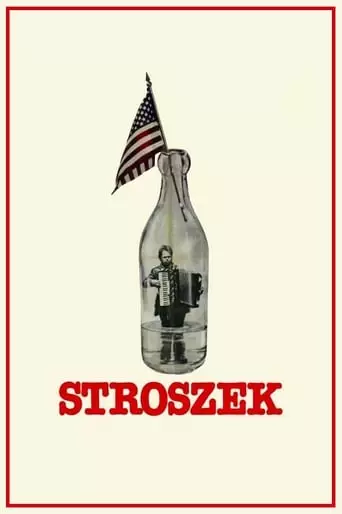
Stroszek (1977) Watch Online Free
Bruno Stroszek is released from prison and warned to stop drinking. He has few skills and fewer expectations: with a glockenspiel and an accordion, he ekes out a living as a street musician. He befriends Eva, a prostitute down on her luck and they join his neighbor, Scheitz, an elderly eccentric, when he leaves Germany to live in Wisconsin.
Stroszek (1977), directed by Werner Herzog, is a stark and haunting exploration of human despair and the futility of seeking a better life. The film follows Bruno Stroszek (Bruno S.), a down-and-out ex-prisoner living in West Berlin. After his release from prison, he befriends Eva (Eva Mattes), a prostitute, and Clemens Scheitz (Clemens Scheitz), an elderly neighbor. Together, they decide to escape their grim circumstances in Berlin and move to America, specifically rural Wisconsin, in pursuit of the American Dream.
The film is divided into two parts: the first is set in Berlin, where Bruno struggles with the oppressive conditions of his life, including mistreatment from Eva’s pimps. The second part follows the group’s journey to Wisconsin, where their hopes for a fresh start quickly unravel as they face more hardships. Instead of finding the prosperity they imagined, they encounter a world no better than their previous one. The film culminates in a surreal and bizarre sequence, including the iconic image of a dancing chicken, symbolizing the film’s dark comedic and existential undertones.
One of the most striking themes in Stroszek is the exploration of the futility of hope. The characters’ dreams of a better life in America are dashed as soon as they arrive. Herzog’s portrayal of the American Dream is deeply cynical, suggesting that no matter where they are, people are trapped in cycles of despair and disappointment. This theme is reinforced by the absurdity of their new surroundings, where the characters encounter a world that is as broken and oppressive as the one they left behind.
The film also touches on the nature of human existence, especially through its lead character, Bruno. His troubled past, which includes being abandoned as an infant and subjected to cruel treatments in mental institutions, shapes his grim worldview. His interactions with Eva and Scheitz, both of whom also have troubled pasts, highlight the existential isolation of the human condition. The film’s surreal elements, like the dancing chicken, emphasize the absurdity and randomness of life. These moments challenge viewers to reflect on the cruelty and meaninglessness of existence, even in a land of supposed opportunity.
Stroszek left a significant mark on both the film world and its audiences. Herzog’s decision to work with non-professional actors, particularly Bruno S., who was not only the lead actor but also the inspiration for the film’s character, adds an element of rawness and authenticity to the performance. Bruno’s unkempt appearance and natural mannerisms lend a sense of realism that deepens the emotional impact of the film.
The film’s minimalist style and Herzog’s documentary-like approach make it a stark contrast to more traditional narrative films. The decision to film on location in both Berlin and Wisconsin, without permits in some cases, further enhances the sense of realism and captures the feeling of alienation in the characters’ journey
After watching Stroszek, you are likely to experience a range of emotions, from deep sadness to dark amusement. The film’s exploration of the futility of the characters’ dreams and their endless struggle against an indifferent world is emotionally draining, but its surreal humor and absurd moments will leave you both baffled and reflective. You might feel a sense of existential unease, but also an appreciation for the rawness of the performances and Herzog’s cinematic vision. The film’s final scenes, particularly the dancing chicken, will likely stay with you as a symbol of life’s unpredictability and inherent tragedy.
In summary, Stroszek is a profound, darkly humorous, and deeply existential film that explores the bleakness of the human condition through Herzog’s distinctive lens. It offers a sobering reflection on the futility of hope and the relentless cycles of human suffering, all wrapped in a uniquely Herzogian package.
